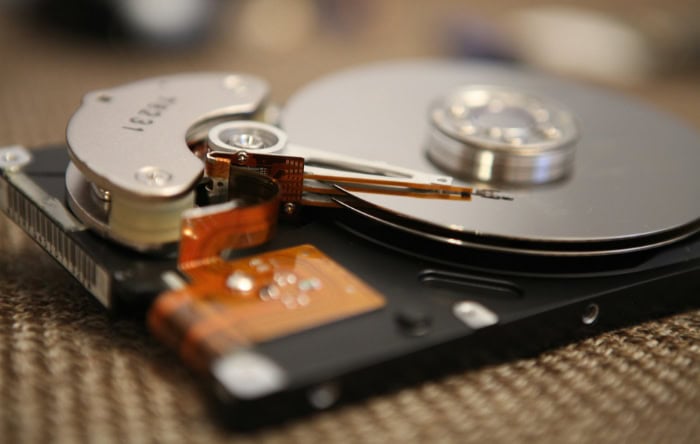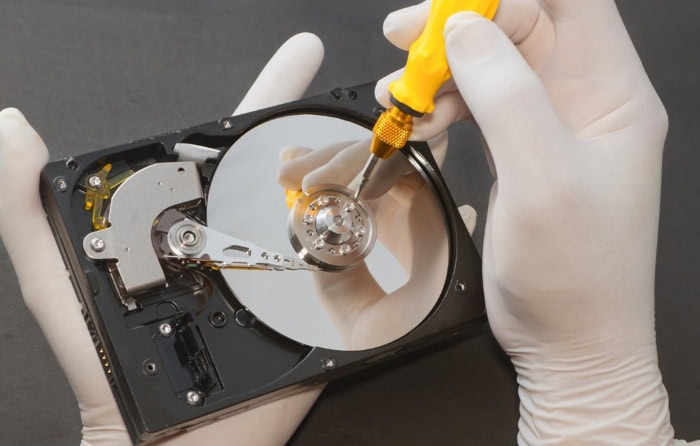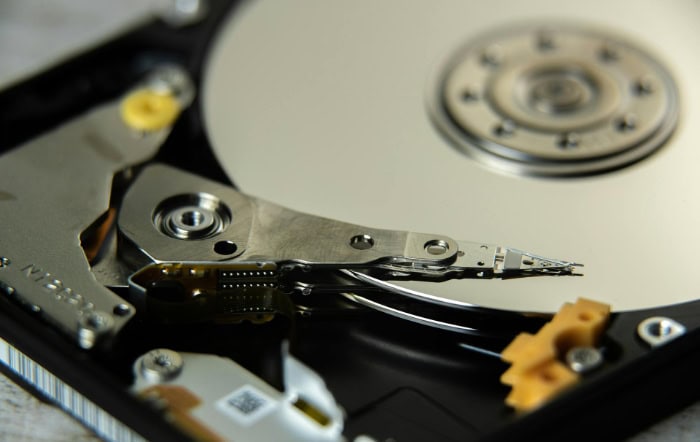Why Data Recovery Is So Expensive: Cost Breakdown

Data recovery services often come with eye-watering price tags, leaving many to wonder why retrieving lost files costs so much. The answer lies in a complex web of factors, from cutting-edge technology to highly specialized expertise.
Recovering lost data isn't just about pressing a few buttons – it's a meticulous process that requires state-of-the-art facilities, proprietary tools, and skilled technicians.
The Intricate World of Data Recovery
Data recovery is a complex process that involves numerous challenges and variables. The high costs associated with these services stem from the intricate nature of the work and the specialized approaches required for each unique case.
A Myriad of Storage Devices and Failure Scenarios
The digital landscape is filled with a vast array of storage devices, each with its own architecture and potential failure modes. From traditional hard disk drives to solid-state drives, and RAID arrays, data recovery specialists must be prepared to handle a wide spectrum of technologies.
Each device type presents unique challenges, requiring specific tools and techniques for successful data retrieval.
Failure types can range from logical issues, such as accidental file deletion or corrupted file systems, to physical damage like head crashes in hard drives or electrical failures in solid-state media. The diversity of potential problems necessitates a broad knowledge base and a versatile set of skills from recovery professionals.
Tailored Approaches for Individual Cases
No two data recovery cases are identical, which means that a one-size-fits-all solution is rarely effective. Recovery specialists must assess each situation individually, developing customized strategies to address the specific issues at hand.
This bespoke approach involves careful analysis of the damaged device, identification of the root cause of data loss, and the creation of a tailored recovery plan.
The need for customization extends to the tools and techniques employed in the recovery process. Specialists often need to modify existing software or develop new tools to address unique challenges presented by each case.
This level of customization contributes significantly to the overall cost of data recovery services.
Time-Consuming Recovery Procedures
Data recovery is often a time-intensive process that requires patience and meticulous attention to detail. Depending on the complexity of the case, recovery procedures can take anywhere from several hours to several weeks.
This extended timeframe is necessary to ensure the highest possible chance of successful data retrieval while minimizing the risk of further damage to the storage device.
The process typically involves multiple stages, including initial assessment, device stabilization, data extraction, and file reconstruction. Each stage requires careful execution and often involves repeated attempts and refinements to achieve the best results.
The time investment required for these procedures is a significant factor in the overall cost of data recovery services.
Preserving Data Integrity and Managing Risks
One of the most critical aspects of data recovery is maintaining the integrity of the recovered information. This requires a careful balance between aggressive recovery techniques and the need to preserve the original data in its unaltered state.
Recovery specialists must employ methods that minimize the risk of further data loss or corruption during the recovery process.
Risk management is an integral part of data recovery operations. Professionals must constantly assess the potential consequences of their actions and make informed decisions to maximize the chances of successful recovery while minimizing potential harm.
This cautious approach, while necessary, can extend the time required for recovery and contribute to higher service costs.
Advanced Technology Behind Data Recovery
The high cost of data recovery services is largely attributed to the cutting-edge technology and specialized equipment required to perform these intricate operations. Data recovery companies invest heavily in state-of-the-art facilities, proprietary tools, and ongoing research to stay ahead in this rapidly evolving field.
Pristine Environments for Delicate Operations
One of the most crucial components of professional data recovery services is the use of advanced clean room facilities. These specialized environments are designed to minimize airborne particles that could potentially damage sensitive storage device components.
Clean rooms are classified based on the number of particles per cubic foot of air, with Class 100 (ISO 5) being the standard for most data recovery operations.
Maintaining these pristine environments is a costly endeavor. The air filtration systems, specialized clothing for technicians, and regular cleaning and maintenance all contribute to the significant overhead costs of running a data recovery business.
These expenses are ultimately reflected in the pricing of recovery services.
Custom-Built Software and Hardware Solutions
Data recovery companies often develop their own proprietary software and hardware tools to address the unique challenges presented by various data loss scenarios. These custom solutions are the result of years of research, development, and real-world experience in dealing with complex recovery cases.
Proprietary software tools may include specialized file system analyzers, data carving algorithms, and reconstruction utilities that can recover data from severely damaged or corrupted storage devices. On the hardware side, companies invest in custom-built equipment for reading and repairing damaged hard drives, solid-state drives, and other storage media.
The development and maintenance of these proprietary tools represent a significant investment for data recovery companies. The costs associated with creating and updating these specialized solutions contribute to the overall expense of recovery services.
Continuous Innovation and Research
The field of data storage is constantly evolving, with new technologies and storage formats emerging regularly. To remain effective, data recovery companies must continuously invest in research and development to stay ahead of these technological advancements.
This ongoing investment includes studying new storage technologies, developing recovery techniques for emerging formats, and adapting existing tools to handle the latest data storage systems. The costs associated with this constant innovation are substantial and are factored into the pricing of data recovery services.
Tailored Equipment for Diverse Recovery Scenarios
Different types of data recovery require specialized equipment designed for specific storage technologies and failure modes. For example, recovering data from a physically damaged hard drive might require precision tools for replacing delicate components, while solid-state drive recovery might necessitate specialized equipment for bypassing faulty controllers or reading raw NAND flash memory.
Some of the specialized equipment used in data recovery includes:
- Disk imaging systems for creating bit-by-bit copies of storage devices
- Head stack replacers for swapping out damaged read/write heads in hard drives
- Electron microscopes for analyzing and repairing damaged circuit boards
- Custom adapters for connecting to proprietary or obsolete storage interfaces
The acquisition and maintenance of this diverse array of specialized equipment represent a significant capital investment for data recovery companies. These costs are ultimately passed on to customers in the form of higher service fees.
The Human Element in Data Recovery

While advanced technology plays a crucial role in data recovery, the expertise and skills of the professionals behind these operations are equally important. The human capital involved in data recovery services significantly contributes to the overall cost, as it requires highly specialized knowledge, continuous training, and substantial labor investment.
Elite Technicians with Specialized Certifications
Data recovery technicians are not your average IT professionals. They undergo rigorous training and certification processes to develop the unique skill set required for this specialized field.
These technicians must possess a deep understanding of various storage technologies, file systems, and data structures, as well as the ability to work with delicate hardware components.
Many data recovery companies require their technicians to obtain industry-recognized certifications, such as those offered by the International Association of Data Recovery Professionals (IACRP) or manufacturer-specific certifications for different storage devices. These certifications demonstrate a technician's proficiency in handling complex data recovery scenarios and adherence to industry best practices.
The process of training and certifying these elite technicians is time-consuming and expensive. Companies invest heavily in developing their staff's expertise, which is reflected in the pricing of their services.
Ongoing Professional Development
The field of data storage and recovery is constantly evolving, with new technologies and challenges emerging regularly. To maintain their effectiveness, data recovery technicians must engage in continuous education and skill development.
This ongoing learning process involves staying updated on the latest storage technologies, data encryption methods, and recovery techniques. Technicians often attend specialized workshops, conferences, and training sessions to enhance their skills and knowledge.
Additionally, many companies implement internal training programs to share knowledge and develop new recovery techniques.
The time and resources invested in this continuous education process contribute to the overall cost of maintaining a team of expert data recovery professionals.
Expert Analysis and Recovery Efforts
The labor costs associated with data recovery services are substantial due to the highly specialized nature of the work. Each recovery case requires expert analysis to determine the most appropriate approach and to develop a customized recovery strategy.
During the recovery process, technicians must carefully execute complex procedures, often involving multiple attempts and refinements. This labor-intensive work can span several days or even weeks for particularly challenging cases.
The time and expertise required for these efforts are significant factors in the pricing of data recovery services.
Moreover, the high-stakes nature of data recovery often necessitates oversight from senior technicians or engineers, further increasing the labor costs associated with these services.
Proprietary Techniques and Trade Secrets
Data recovery companies invest considerable resources in developing proprietary techniques and tools that give them a competitive edge. These unique approaches to solving complex data recovery challenges are closely guarded trade secrets within the industry.
The development of these proprietary methods often involves years of research, experimentation, and real-world application. Companies protect their intellectual property through patents, non-disclosure agreements, and strict security measures.
The value of this intellectual property is factored into the pricing of data recovery services, as it represents a significant investment and a crucial differentiator in the market. Clients benefit from these advanced techniques, which often result in higher success rates for challenging recovery cases.
Market Forces Shaping Data Recovery Costs
The data recovery industry operates within a unique market environment that significantly influences service pricing. Various factors, including limited competition, high operational costs, reputation management, and legal considerations, all play a role in determining the final cost of data recovery services.
Niche Market with Few Competitors
Data recovery is a highly specialized field that requires significant expertise and investment, creating a high barrier to entry for new companies. As a result, there are relatively few players in the market capable of handling complex data recovery cases.
This limited competition allows established companies to maintain higher pricing for their services.
The specialized nature of data recovery also means that companies often focus on specific niches or technologies, further reducing direct competition in certain areas. For example, some firms might specialize in recovering data from enterprise-level RAID systems, while others focus on mobile device recovery.
This specialization can lead to premium pricing for expertise in particular areas.
Substantial Operational Expenses
Data recovery companies face significant overhead costs associated with maintaining their facilities and equipment. These expenses include:
- Rent and utilities for clean room facilities
- Maintenance and upgrades for specialized recovery equipment
- Ongoing costs for proprietary software licenses and development
- Insurance premiums for handling sensitive data and expensive equipment
These high fixed costs must be factored into the pricing of data recovery services to ensure the company's financial viability. The specialized nature of the equipment and facilities means that these costs are often higher than those in other tech-related industries.
Balancing Price, Success Rates, and Reputation
In the data recovery industry, a company's reputation is closely tied to its success rates. Firms must carefully balance their pricing strategies with their ability to successfully recover data.
Higher prices may allow companies to invest more resources into challenging cases, potentially improving their success rates and enhancing their reputation.
Conversely, companies must also ensure that their pricing remains competitive enough to attract customers. This delicate balance often results in a pricing structure that reflects the value of the service provided, taking into account the company's track record and expertise.
Many data recovery firms offer tiered pricing based on the complexity of the recovery case and the urgency of the service. This approach allows companies to cater to a broader range of customers while still maintaining premium pricing for more challenging or time-sensitive recoveries.
Legal and Regulatory Compliance Costs
Data recovery companies must navigate a complex landscape of legal and regulatory requirements, particularly when dealing with sensitive or confidential information. Compliance with data protection laws, such as GDPR in Europe or HIPAA in the United States, requires significant investment in security measures and staff training.
Additional legal considerations include:
- Maintaining proper chain of custody for forensic recoveries
- Implementing secure data destruction processes for unrecoverable devices
- Obtaining necessary certifications for handling government or military data
The costs associated with meeting these legal and regulatory requirements are factored into the overall pricing of data recovery services. Companies must invest in robust security measures, regular audits, and ongoing staff training to ensure compliance with evolving regulations.
Furthermore, data recovery firms often carry specialized insurance policies to protect against potential liabilities associated with handling sensitive data. The premiums for these policies contribute to the overall cost of providing data recovery services.
Assessing the True Value of Data Recovery

While the cost of professional data recovery services may seem high at first glance, it's essential to consider the value proposition and conduct a thorough cost-benefit analysis.
Professional Expertise vs. Home Remedies
When faced with data loss, many individuals and businesses are tempted to try DIY recovery methods or use consumer-grade software tools. While these approaches may seem cost-effective, they often fall short in complex data loss scenarios and can potentially cause further damage to the storage device.
Professional data recovery services offer several advantages over DIY methods:
- Advanced tools and techniques not available to consumers
- Expertise in handling a wide range of data loss scenarios
- Clean room facilities for safely working with sensitive hardware components
- Ability to recover data from severely damaged or encrypted devices
DIY attempts, on the other hand, carry significant risks:
- Potential for further data loss or device damage
- Limited success rates for complex issues
- Lack of proper equipment and controlled environments
- Risk of voiding manufacturer warranties
While professional services come at a higher upfront cost, they often provide better outcomes and reduce the risk of permanent data loss.
Reliability and Data Integrity Assurance
Professional data recovery companies typically offer higher success rates compared to DIY methods or less experienced service providers. Many reputable firms provide success rate statistics for different types of data loss scenarios, giving clients a clear picture of what to expect.
Moreover, professional services often come with data integrity guarantees. This means that recovered data is verified to be complete and uncorrupted.
Such guarantees are particularly crucial for businesses dealing with sensitive information or legal requirements.
Some companies also offer “no data, no charge” policies, where clients only pay if the recovery is successful. This approach aligns the interests of the service provider with those of the client, ensuring that efforts are focused on achieving the best possible outcome.
Weighing Data Value Against Recovery Costs
To determine if professional data recovery is worth the expense, it's crucial to assess the value of the lost data. Consider the following factors:
- Financial impact of lost data (e.g., customer records, financial documents)
- Emotional value of personal files (e.g., family photos, videos)
- Time and resources required to recreate lost information
- Legal or regulatory implications of data loss
For businesses, the cost of downtime and potential loss of customer trust should also be factored into the equation. In many cases, the expense of professional data recovery pales in comparison to the potential losses associated with permanent data loss.
Conclusion
Professional data recovery services command high prices due to a combination of advanced technology, specialized expertise, and complex market dynamics. The intricate processes involved, cutting-edge equipment required, and highly skilled technicians all contribute to the substantial costs.
These factors, coupled with limited competition and stringent legal requirements, create an environment where premium pricing is often necessary.
While the expense may seem daunting, the value proposition of professional data recovery becomes clear when considering the potential consequences of permanent data loss. For many individuals and businesses, the cost of recovery pales in comparison to the financial, operational, or emotional impact of losing critical information.
Nonetheless, the high cost of data recovery underscores the importance of implementing robust backup strategies and data protection measures.


